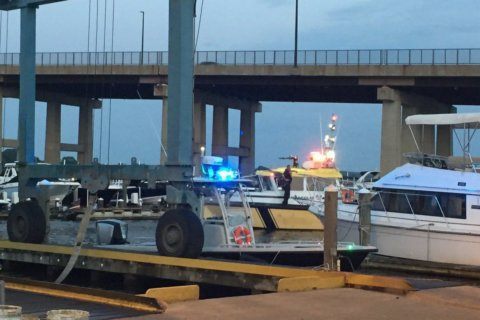It’s been a deadly week on Maryland waters: Seven of the 11 fatalities this year have come since last Saturday night.
The seven died while engaged in a wide variety of activities on the water — kayaking, crabbing, jet skiing, even jumping off a pier — day and night, in busy rivers and smaller creeks.
The most common denominator in these fatal accidents involves the lack of a life jacket.
“Everybody in a boat on the water that’s not at a pier needs to be wearing a life jacket,” said Col. Robert Ziegler, who leads the Maryland Natural Resources Police.
He estimates 80% of the fatalities that happen on the water each year are drownings that could be avoided if life jackets were worn.
“Putting a life jacket on when you realize you’re about to go overboard is like trying to put your seat belt on when you’re about to have a car accident — you can’t do it,” said Ziegler, adding that putting on a life jacket once you’re already in the water is much easier said than done: “It floats, you don’t.”
“We are very good at recovering people after a boat accident if they’re on the surface of the water,” said Capt. Joe Loring, sector commander for Coast Guard Sector Maryland, National Capital Region. “If they’re wearing a life jacket, we are going to find you.”
If you’re not: “The likelihood of us finding you quick enough is drastically reduced.”
Six of the seven deaths recorded in the last week have occurred in Anne Arundel County waters. Trisha Woolford, Anne Arundel County’s fire chief, said providing someone with what she calls a float plan is a smart move.
“Does somebody in your family know where you’re at? Have you said to them, ‘I’m going to go here, I’m going to get in the water, I’m going to do a couple laps, and I’m going to be home in 30 minutes?'” she asked, rhetorically.
“Do we have knowledge of where we went in the water? Do we know that you should have been back 30 minutes ago?”
That’s information rescuers need to know immediately, since time is of the essence at that point, she said.
And if you ever start to worry about someone who hasn’t returned when they said they would, Woolford said don’t ever hesitate to call 911, because those extra minutes you spend waiting could be crucial.
In addition, Woolford stressed repeatedly that public safety is what the multiple agencies who respond in these situations are there for.
“We don’t mind sending the cavalry,” said Woolford.
“We would rather get to a scene, have somebody come and say ‘I’m really sorry, my brother just got home, he’s here and safe’,” she added. “That’s a great day for us.”







